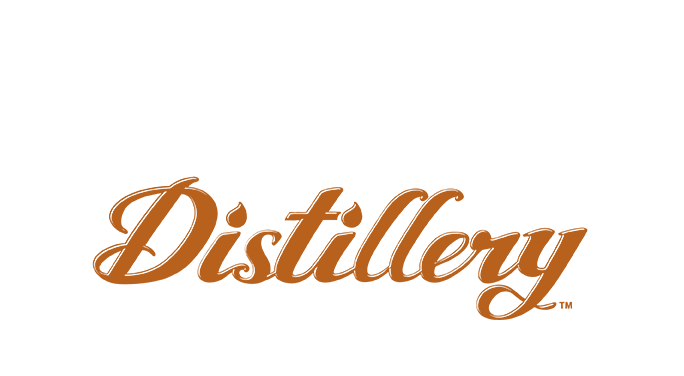TASTE THE SPIRIT
DISTILLED TRADITION
The Full Throttle Distillery is located in Trimble, Tennessee – Michael’s hometown of 637 residents.
Tennessee Whiskey is defined as a spirit that is distilled in Tennessee from at least 51% corn, and that corn is grown at Michael’s farm, steps away from the Full Throttle Distillery in Trimble, TN. We take pride in producing an incredible product crafted in the USA using our locally grown grain, distilled to perfection in American white oak barrels.
THE PROCESS
Full Throttle captures the most flavorful distillate using a traditional copper Pot Still.
During pot distillation, the wash heats in the main chamber until boiling ethanol vapor rises to the head of the still and exits via the Lyne arm. From here, vapor passes into the cooling coil, where it condenses and flows as a liquid into a collection vessel.
Our moonshine is corn-based, unaged, and crystal clear, staying true to traditional 1900s recipes and methods. Using an authentic copper still, Michael Ballard has crafted a genuine, full-flavored moonshine that’s worth the journey. With over 10 all-natural flavors, Ballard’s original Tennessee moonshine offers a bold 70-proof kick and a taste that stands above the rest.
Michael Ballard knew that a distillery of this magnitude required a master distiller to oversee the process and ensure the quality and flavor worthy of the Full Throttle brand.
Enter Dr. Paul Higgs, the Master Distiller at Michael Ballard’s Full Throttle Distillery in Trimble, Tennessee.
Dr. Paul Higgs holds a Bachelors and Masters degree in Science, along with a PhD in chemistry. With over 25 years of experience teaching and conducting research in organic, bio-organic, and biochemistry across multiple universities, his expertise is unmatched. Combined with his Scottish, Irish, and Welsh heritage, it seemed only natural for him to partner with Michael Ballard and immerse himself in the artisanal craft of whiskey and distilled spirits.
MEET THE LEGEND
OUR MASTER DISTILLER

DR. PAUL HIGGS
Dr. Paul Higgs is the master distiller at Full Throttle Distillery, combining technical expertise with a passion for handcrafted spirits. He holds a B.S., M.S., and Ph.D. in Chemistry from the University of Auckland in his native New Zealand. Dr. Higgs brings over 25 years of teaching and research experience in Organic, Bio-organic, and Biochemistry, having worked at several prestigious universities, including:
Virginia Tech
University of Florida
University of Miami
Barry University (Miami)
University of Tennessee
With deep ancestral roots in the Scottish, Irish, and Welsh distilling traditions, Dr. Higgs brings a wealth of knowledge and expertise that perfectly aligns with Full Throttle’s unwavering commitment to excellence. His background in these time-honored practices adds a unique layer of authenticity to every batch of moonshine and whiskey crafted at Full Throttle. Each bottle is a reflection of his meticulous attention to detail, unparalleled craftsmanship, and an uncompromising dedication to producing spirits of the highest quality. The result is a truly distinctive product that honors both tradition and innovation in every sip.
SPIRIT OF REBELLION
THE HISTORY OF
MOONSHINE
The word “moonshine” is believed to be derived from the term “moonrakers” used for early English smugglers and the clandestine nature of the operations of illegal Appalachian distillers who produced and distributed whiskey. The distillation was done at night to avoid discovery.
Moonshine was especially important to the Appalachian area. This white whiskey most likely entered the Appalachian region in the late 18th century to early 1800s. Scots-Irish immigrants from the Ulster region of Northern Ireland brought their recipe for their uisce beatha, Gaelic for “water of life”. The settlers made their whiskey without aging it, and this is the same recipe that became traditional in the Appalachian area.
In the early 20th century, moonshine became a key source of income for many Appalachian residents, since the limited road network made it difficult and expensive to transport corn crops. As a study of farmers in Cocke County, Tennessee, observes: “One could transport much more value in corn if it was first converted to whiskey. One horse could haul ten times more value on its back in whiskey than in corn.” Moonshiners in Harlan County, Kentucky, like Maggie Bailey, made the whiskey to sell in order to provide for their families. Others, like Amos Owens, from Rutherford County, North Carolina, sold moonshine to nearby areas.
In modern usage, the term “moonshine” ordinarily implies that the liquor is produced illegally; however, the term has also been used on the labels of some legal products as a way of marketing them as providing a similar drinking experience as found with illegal liquor. Moonshine, white lightning, mountain dew, hooch, homebrew, and white whiskey are terms used to describe high-proof distilled spirits that are generally produced illicitly.
Moonshine is typically made with corn mash as the main ingredient. Liquor-control laws in the United States that prohibit moonshining, once consisting of a total ban under the 18th Amendment to the United States Constitution, now center primarily on evasion of revenue taxation on spiritous and/or intoxicating liquors, and are enforced by the Bureau of Alcohol, Tobacco, Firearms and Explosives of the United States Department of the Treasury; such enforcers of these laws are known by the often derisive nickname of “revenooers”.
Moonshine became legal in the U.S. after the repeal of Prohibition in 1933, although it remained heavily regulated. While once associated with illegal production to avoid taxes, the rise of craft spirits and traditional distilling methods led some states to legalize “white whiskey” or moonshine in recent years, with strict licensing and taxation rules. This shift allowed distillers to legally produce high-proof spirits, while honoring the heritage of moonshining in American culture.
